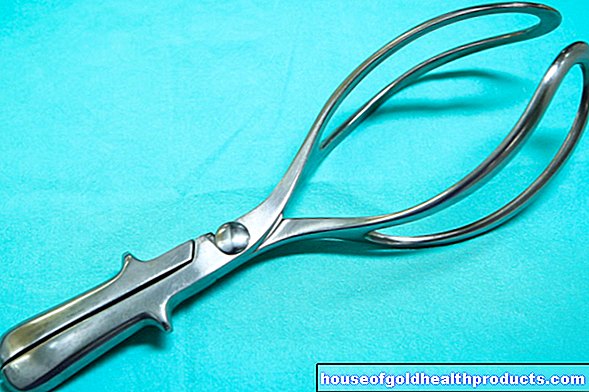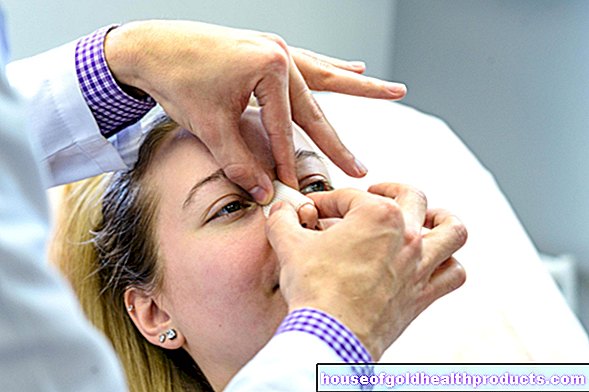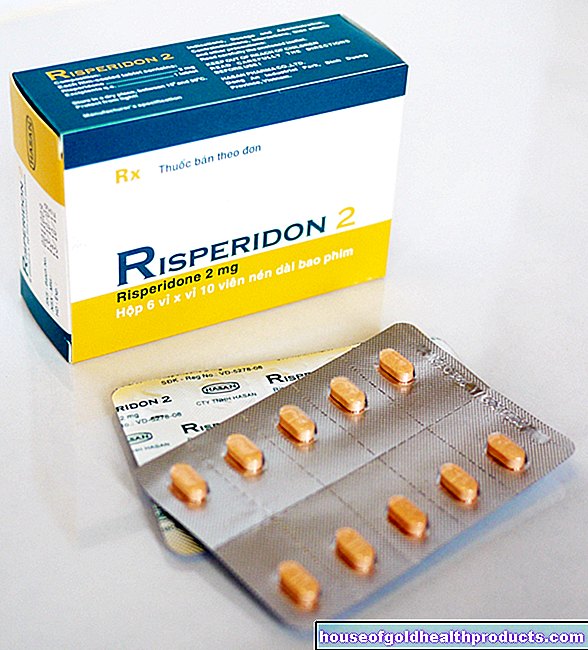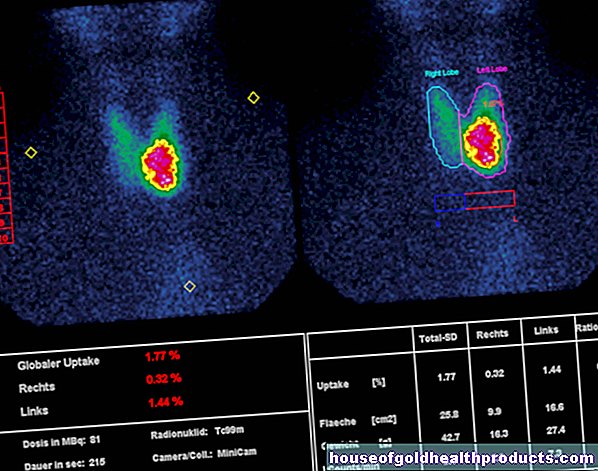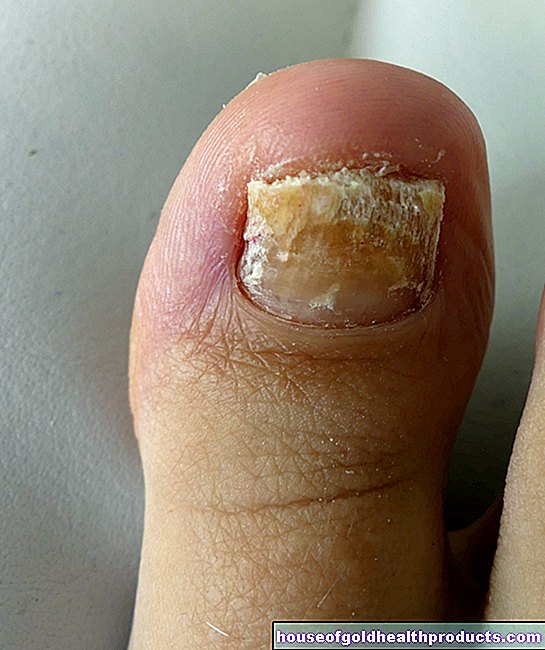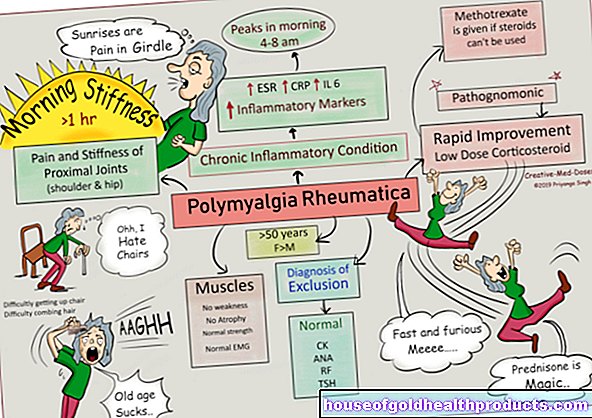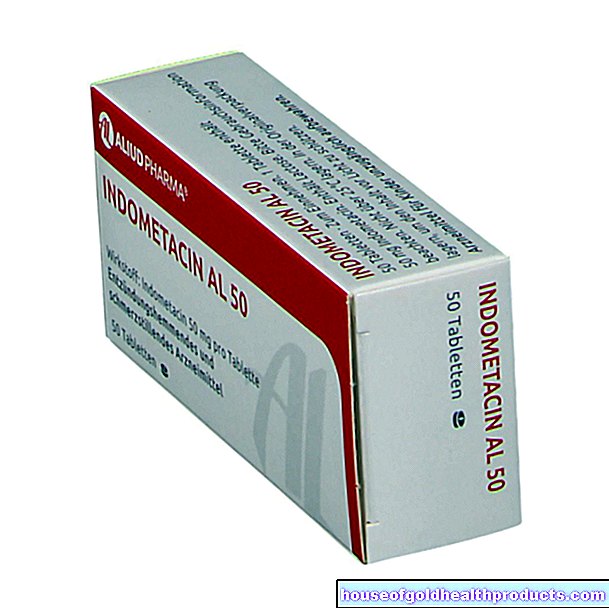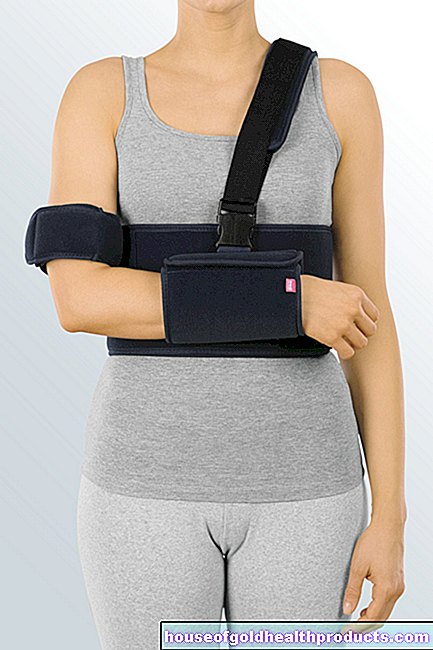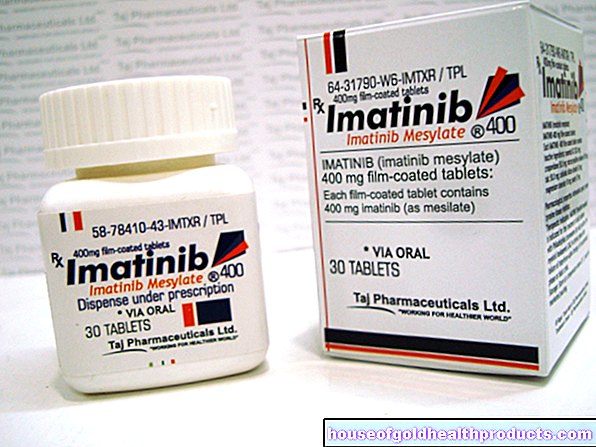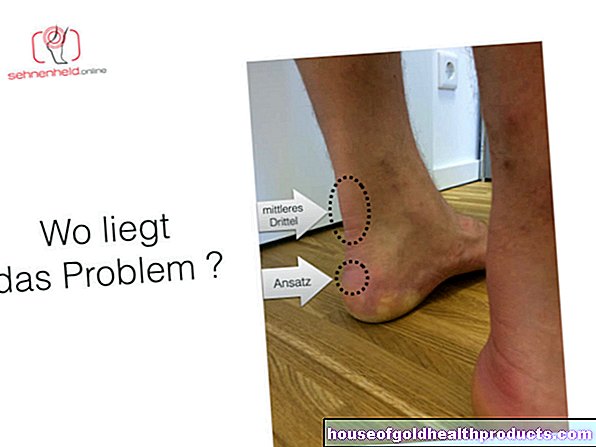Biperiden
All content is checked by medical journalists.Biperiden is a so-called anticholinergic. It is used in Parkinson's disease, among other things, to alleviate muscle stiffness (rigidity) and uncontrollable tremors (tremor). The active ingredient can be taken as a tablet and administered as an injection. Here you can read everything you need to know about the use, mode of action and side effects of Biperiden.
This is how Biperiden works
In Parkinson's disease, those nerve cells in the brain that produce the neurotransmitter dopamine die. This leads to a relative preponderance of other messenger substances such as acetylcholine. This triggers Parkinson's symptoms such as stiff muscles (rigidity) and tremors (tremor).
Biperiden suppresses the action of the messenger substance acetylcholine, which reduces the imbalance in the messenger substance balance. This primarily alleviates the tremors (tremor) that Parkinson's patients suffer from, but also other symptoms such as muscle stiffness (rigidity) and a lack of exercise (akinesia).
Uptake, degradation and excretion of Biperiden
On the one hand, the active ingredient can be used orally (tablet, prolonged release tablet) and then enters the blood through the intestinal wall. On the other hand, Biperiden can also be administered as an injection solution. The active ingredient is metabolized in the liver. It is excreted in the urine and stool.
When is Biperiden used?
Biperiden is approved for Parkinson's syndromes, primarily to relieve symptoms such as tremor and rigidity. It is also used for drug-related Parkinson's and so-called extrapyramidal movement disorders. These include, for example, dystonia (persistent cramps in the skeletal muscles that cannot be deliberately influenced), eyelid cramps (blepharospasm) "torticollis" (torticollis spasmodicus).
The injection solution can also be administered for nicotine poisoning and poisoning with organic phosphorus compounds.
This is how Biperiden is used
The active ingredient is usually taken as a tablet or an extended-release tablet (tablet with delayed release of the active ingredient). In emergencies such as poisoning, it is often given as a solution for injection directly into a vein or muscle, because it then works faster.
Oral therapy is started with a low dose, which is then slowly increased depending on tolerability and effect up to an individual maintenance dose (“creeping in” the therapy). The maximum dose per day is ten to 20 milligrams of Biperiden.
Abrupt discontinuation of the drug should be avoided (except in an emergency). Instead, the dose should be reduced gradually.
What are the side effects of Biperiden?
Possible Biperiden side effects are, for example, dry mouth, tiredness, dizziness, anxiety, agitation, restlessness, confusion, hallucinations, cognitive disorders, urination problems, nausea, stomach complaints, palpitations and accommodation disorders (disorders of the adaptability of the eye).
What should be considered when using Biperiden?
Biperiden must not be used in the following cases:
- untreated angle-closure glaucoma (a type of glaucoma)
- Narrowing (stenosis) in the gastrointestinal tract
- Myasthenia gravis (neurological disease associated with severe muscle weakness)
Biperiden should be used with caution in diseases associated with a racing heart (tachycardia) or an increased tendency to cramp.
During pregnancy and breastfeeding, mothers should only use Biperiden after consulting their gynecologist.
If Biperiden and other drugs are used at the same time, there may be interactions. For example, the simultaneous use of antacids (remedies for heartburn and acid-related stomach problems) reduces the absorption of Biperiden into the body. Further interactions are possible, for example, with quinidine (agent against cardiac arrhythmias), metoclopramide (agent against nausea and vomiting), antihistamines (agent against allergic reactions and nausea), other Parkinson agents and alcohol.
How to get drugs with Biperiden
Biperiden requires a prescription, so it is only available from a pharmacy with a doctor's prescription.
Tags: parasites hair book tip


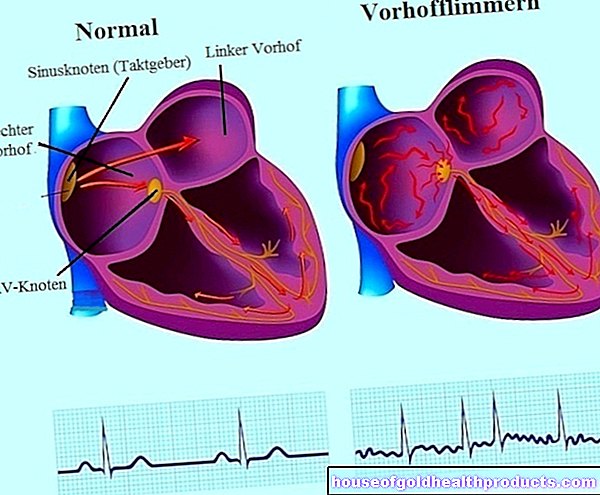
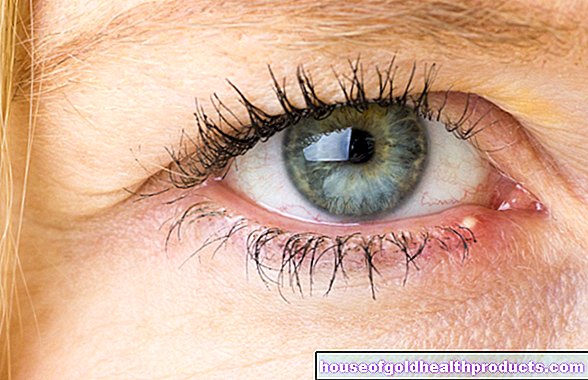


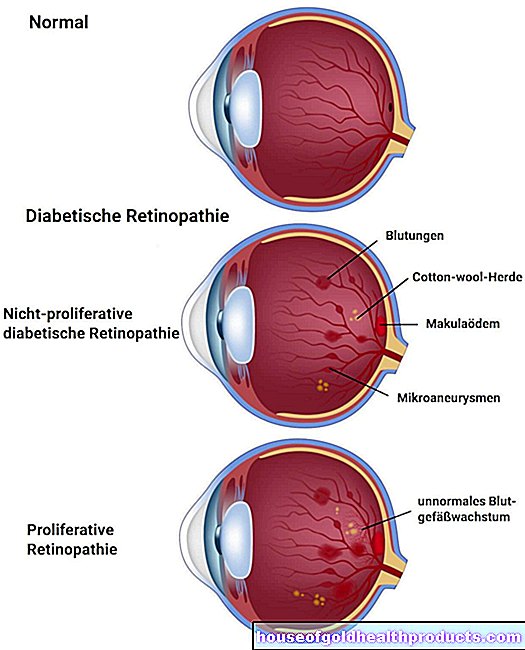




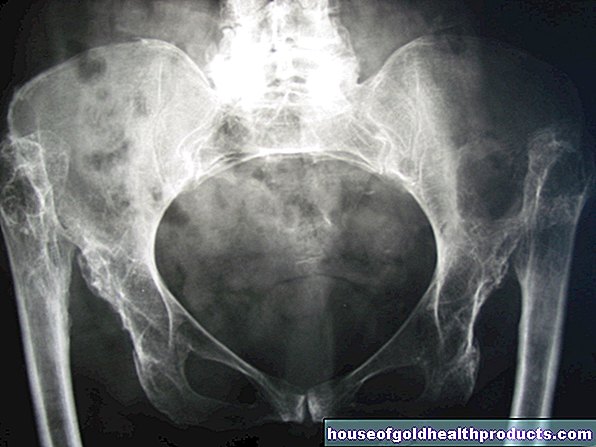
.jpg)
